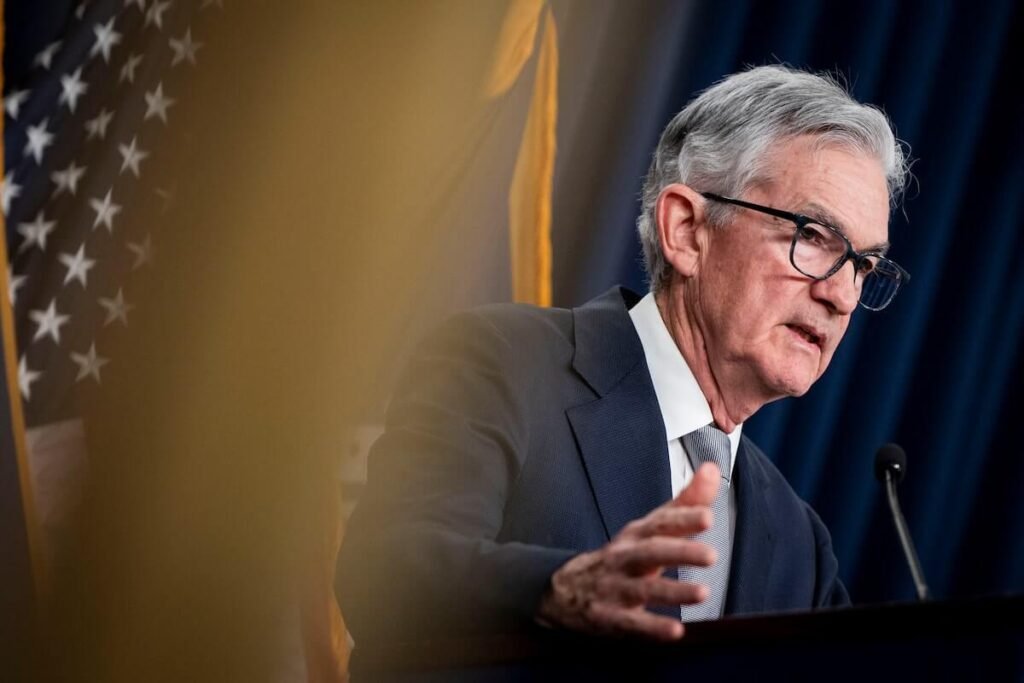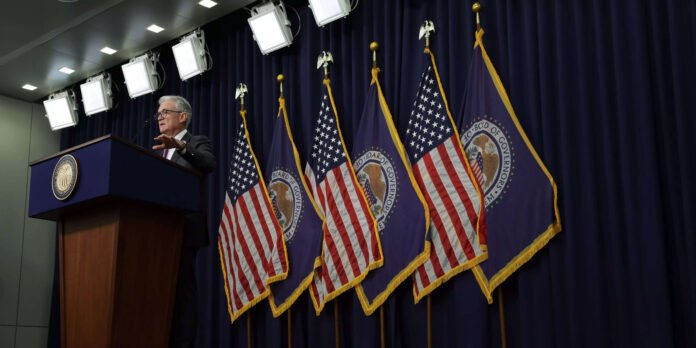UBS, a prominent European bank, predicts that the United States will experience a recession in 2024, prompting the Federal Reserve to implement significant interest-rate cuts. According to UBS, the central bank is expected to make an extraordinary reduction of 275 basis points, nearly four times larger than the market’s current expectation of a 75-basis-point cut, as indicated by the CME Group’s Fedwatch tool.
In a research note published on Tuesday, a team led by economist Arend Kapteyn and strategist Bhanu Baweja highlighted one of the key features of UBS’s forecast: a substantial Fed easing cycle set to unfold from March 2024 onwards. They anticipate interest rates dropping to just 1.25% in the first half of 2025.

UBS attributes the Federal Reserve’s proposed cuts to respond to the anticipated US recession in Q2-Q3 2024 and the ongoing slowdown in both headline and core inflation.
Since March 2022, the Federal Reserve has raised borrowing costs from near-zero to approximately 5.5%, aiming to curb rising prices. Despite inflation hitting a four-decade high of 9.1% in June of the previous year, it has started to cool, although it remains significantly above the central bank’s 2% target.
While the tightening campaign might be expected to weigh on the economy, the US has managed to avoid a recession thus far. The country’s gross domestic product expanded by 4.9% in the third quarter, marking its highest growth rate in two years. The job market has also held up reasonably well, with the unemployment rate, while showing a slight increase in recent months, still hovering below 4%.
Notably, UBS’s recession prediction contrasts with another outlook presented by Jason Draho, UBS’s head of asset allocation for the Americas. In a recent presentation, Draho highlighted the surprising resilience of the US economy this year, suggesting that it sets the stage for a “roaring ’20s” period characterized by higher GDP growth, inflation, bond yields, and interest rates.




